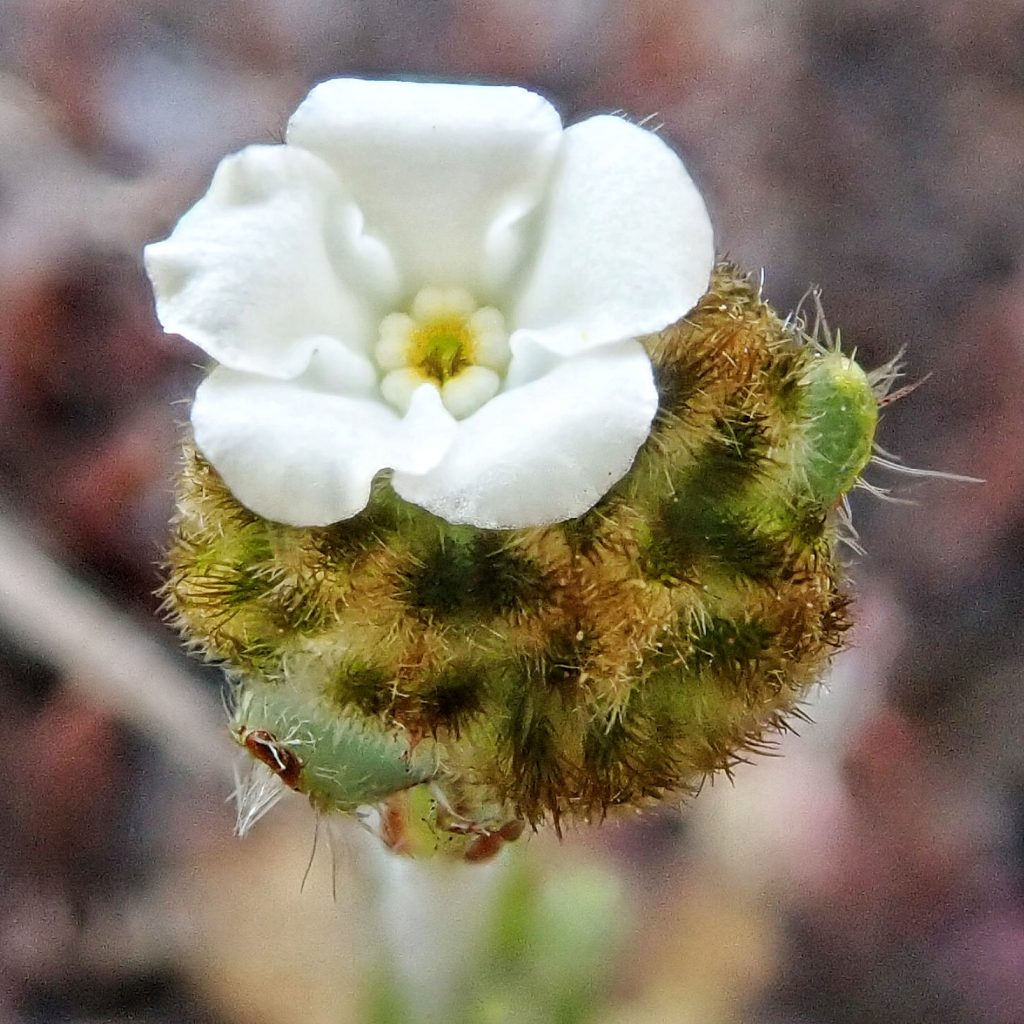
I have to admit that I had never before taken the time to properly identify one of the popcorn flowers, mostly because there are over a dozen of them in our region, and I assumed it would require a key. But Plagiobthrys nothofulvus, commonly called rusty popcorn flower, was fairly straightforward, and would be easier later in the year when the fruits (called nutlets) are more exposed.
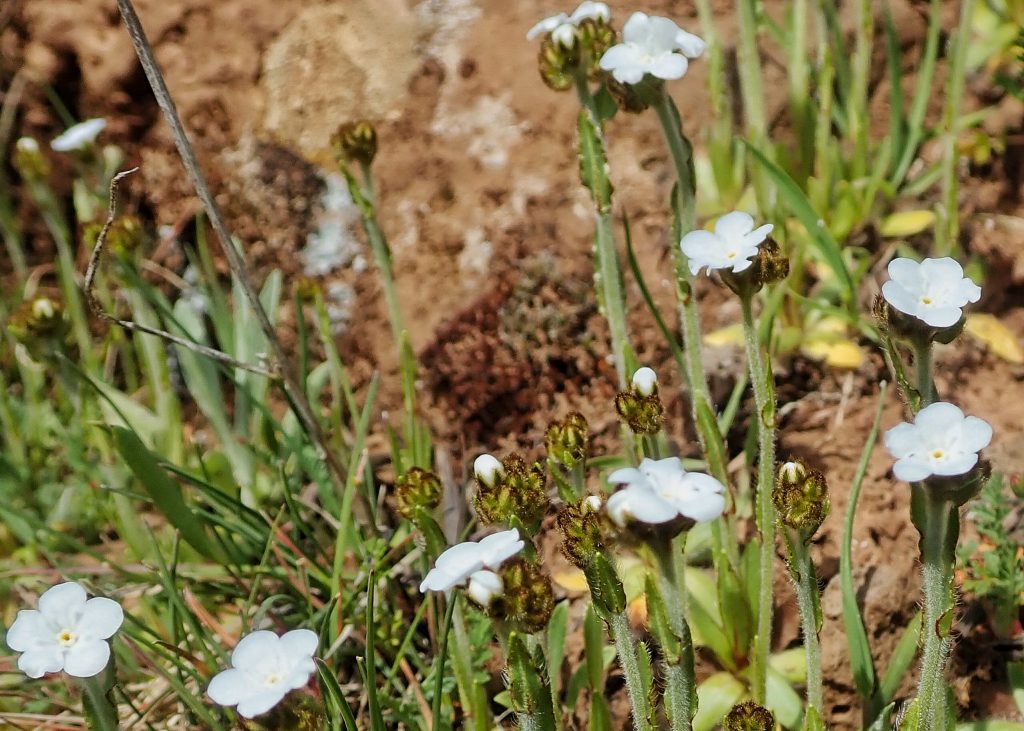
For most purposes noting the alternate stem leaves, the size of the flower, and the relative hairiness of the stem and stem leaves would be sufficient. But for purposes of accuracy relating to this blog I had to dissect a flower to prove to myself it didn’t have cruciform nutlets.
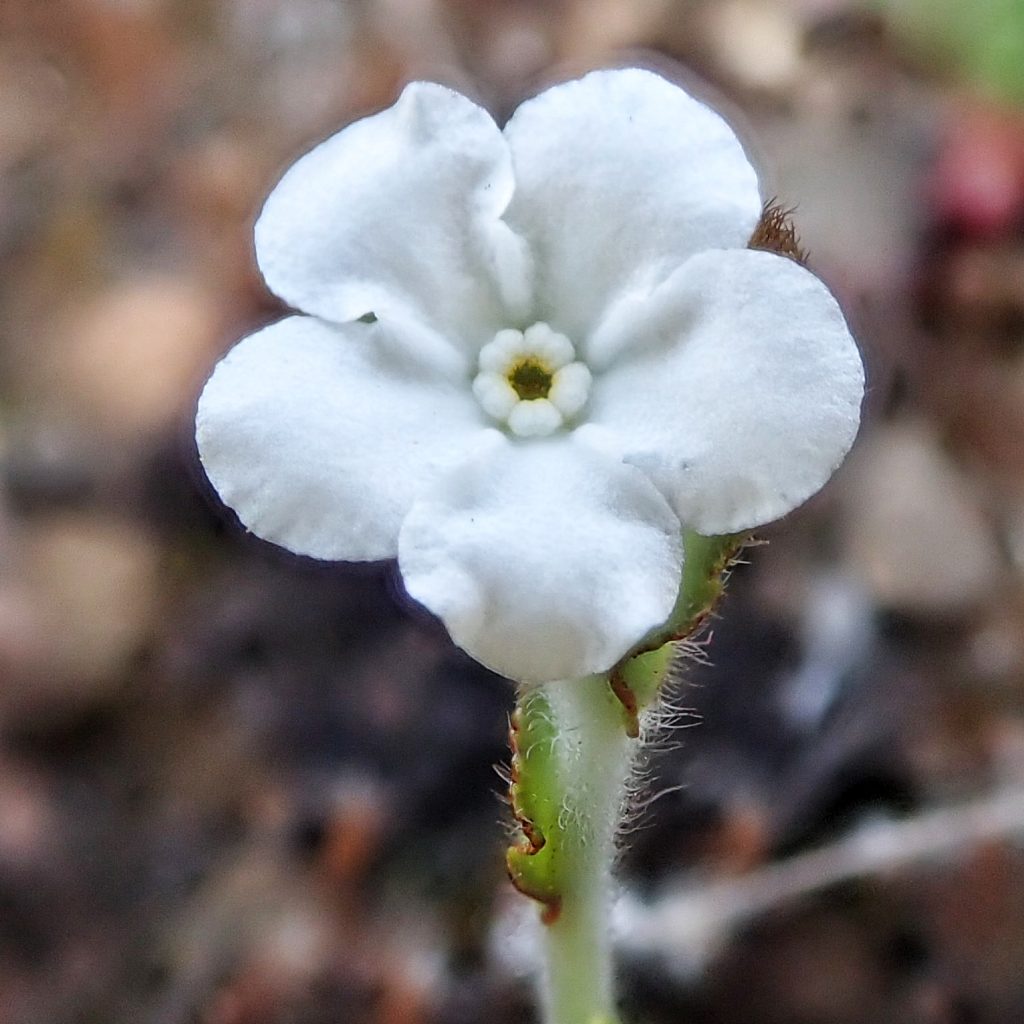
I’m glad I made the effort though. Now I now what to look for on other popcorn flowers. I have always liked them, and find that little bit of yellow in the throat to be cheering. Now I’m looking forward to finding other species and applying my newfound knowledge, hopefully before it leaks out of the colander I call my mind.
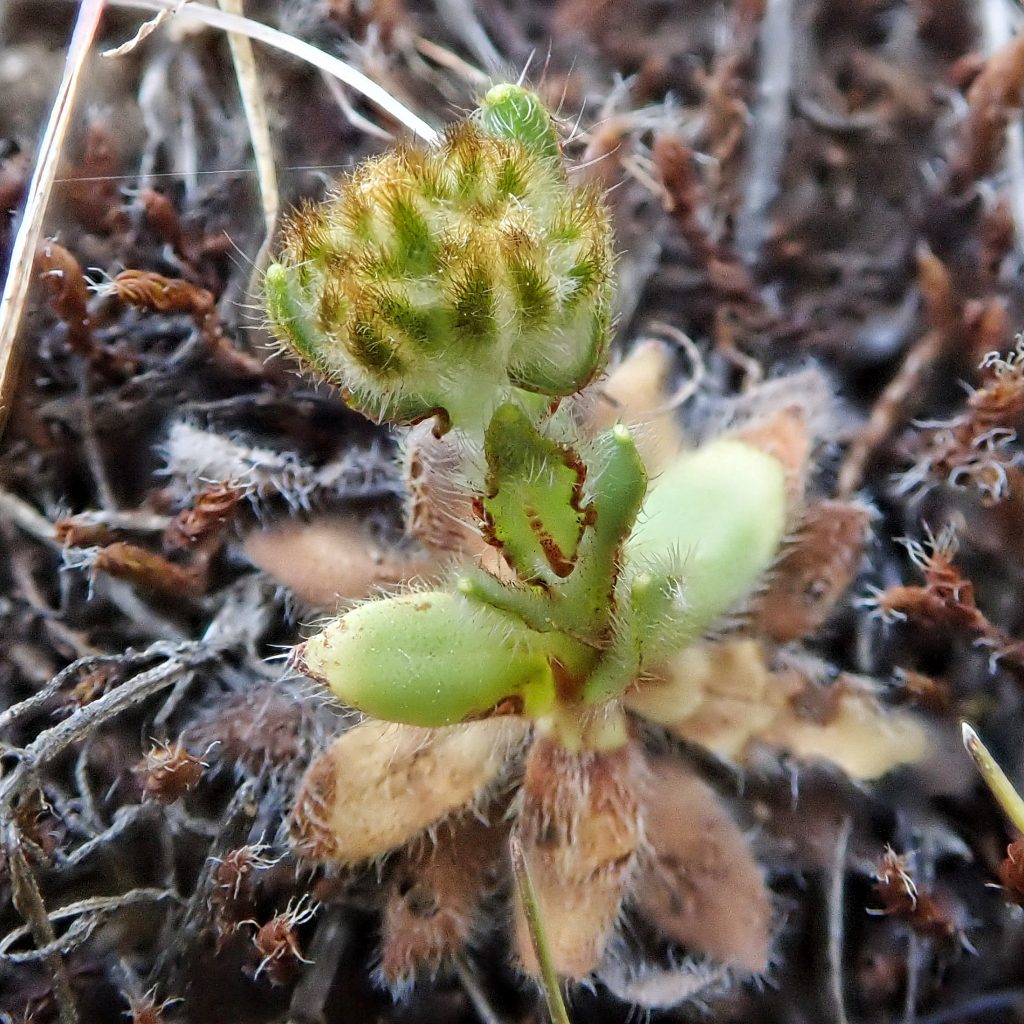
Description– Plants have a basal rosette and many erect stems; leaves are lanceolate and alternate, usually with purple along the margins from oozing sap; stems and leaves with short, sparse, glandular hairs, usually rusty brown; calyx and bracts with dense, trusty brown hairs; flowers 4-6mm wide, with a raised center and yellowish throat; inflorescence elongates as the flowers mature; nutlet is oblong
Similar species– P. tenellus has smaller flowers, has a cruciform nutlet, and is much hairier on the stem; P. kingii is found east of Cascades in juniper scrub; P. figuratus and P. scouleri have opposite leaves, at least lower on the stem.
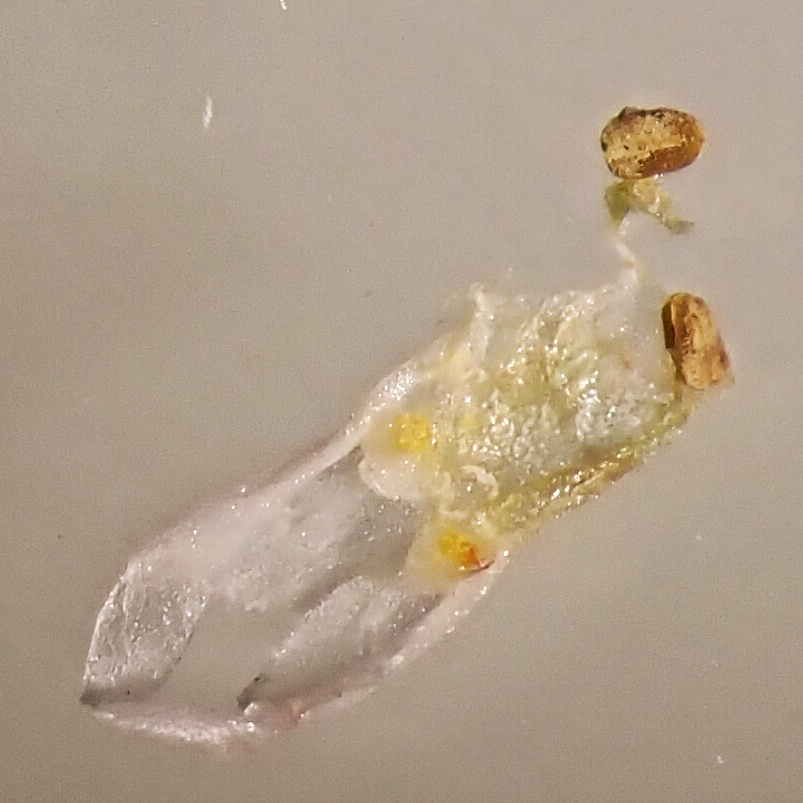
Habitat– Open areas and meadows, often vernally wet
Range– Native; Mostly w Oregon, with populations on both sides of the Columbia River Gorge
Reproductive timing– Blooms in early to mid spring.
Eaten by– This plant is a larval host to the small moth Ethmia plagiobothrae.
Etymology of names–Plagiobothrys roughly translates from the Greek as ‘pit placed sideways’ which refers to the location of the nutlet scar in the members of this genus. The specific epithet nothofulvus means ‘false/illegitimate’ (in Greek) fulvus, P. fulvus being a species for which this species was mistaken, and fulvus meaning ‘yellowish’ in Latin, a reference to the tawny hairs on the calyx of that species.
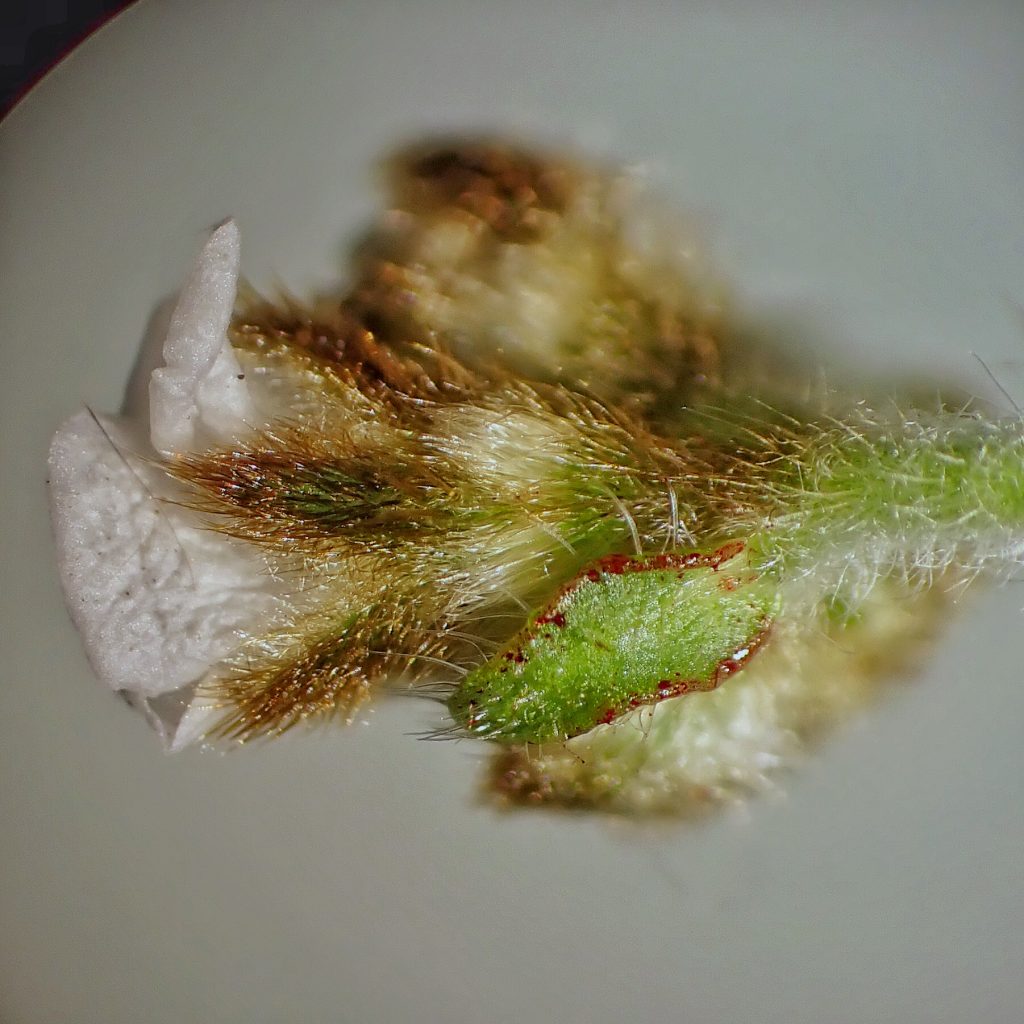
https://www.pnwflowers.com/flower/plagiobothrys-nothofulvus
https://ucjeps.berkeley.edu/eflora/eflora_display.php?tid=38516
https://en.m.wikipedia.org/wiki/Plagiobothrys_nothofulvus
https://calscape.org/Plagiobothrys-nothofulvus-()
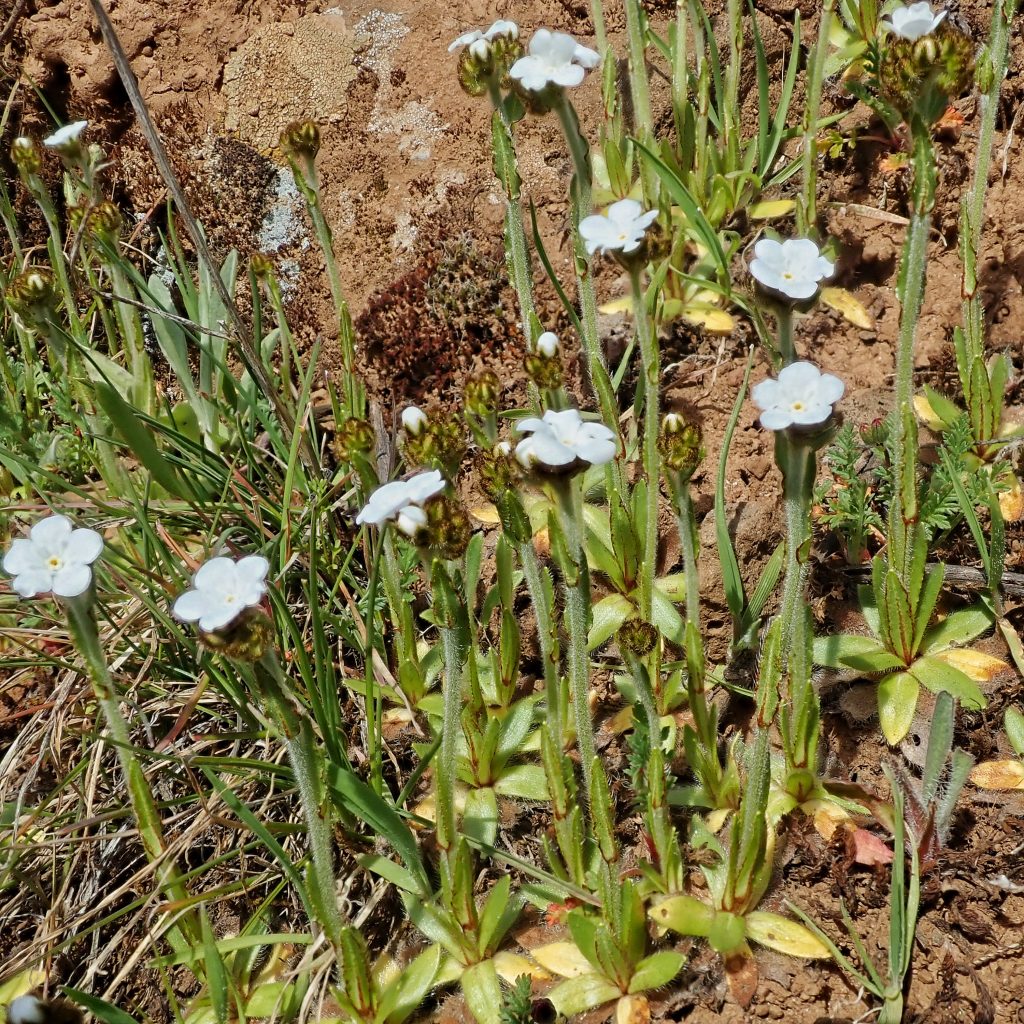
Little flowers some what easy to miss seeing them. But through your lens & detailed description they really are quite lovely! Thank you ☺️